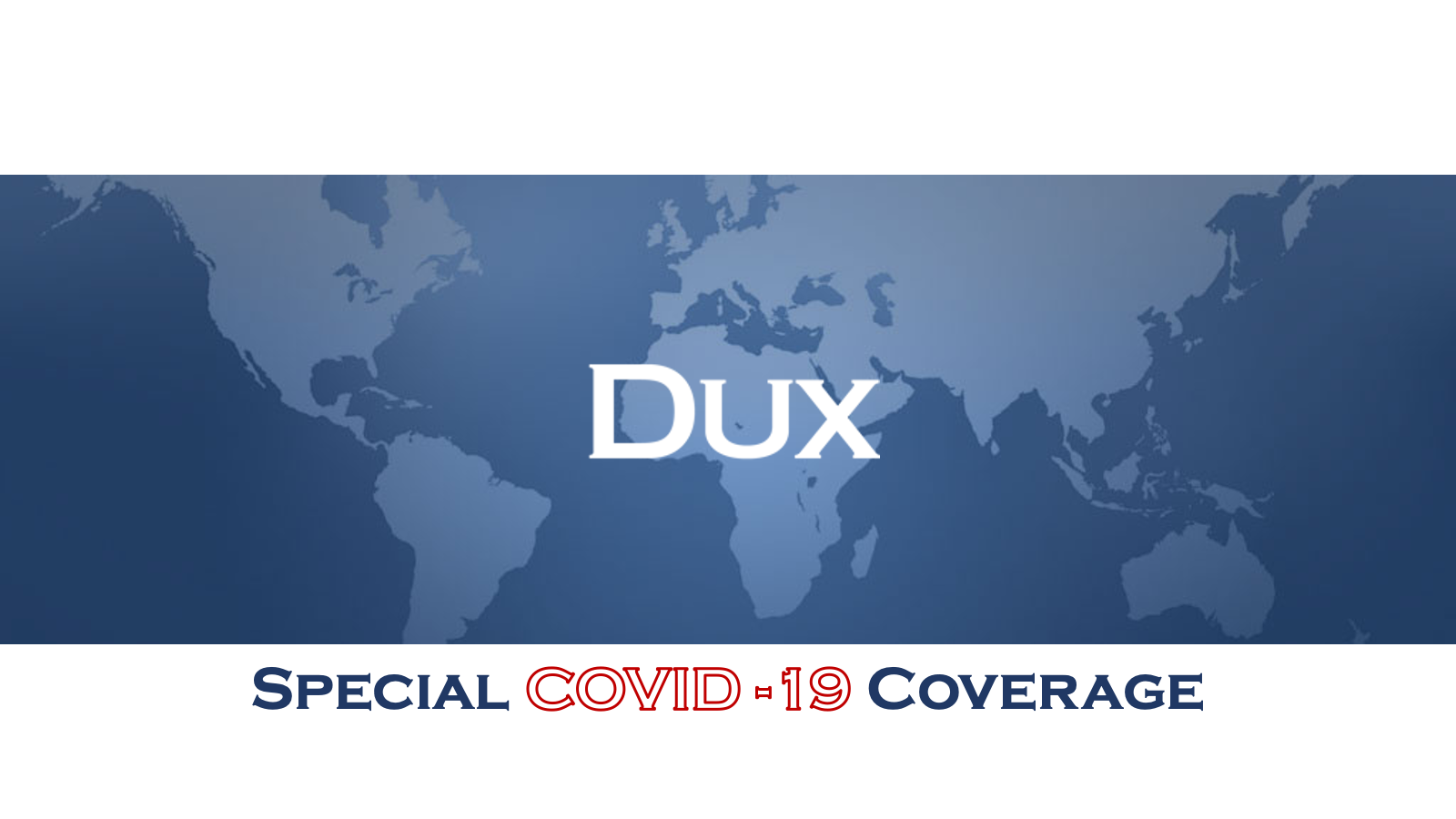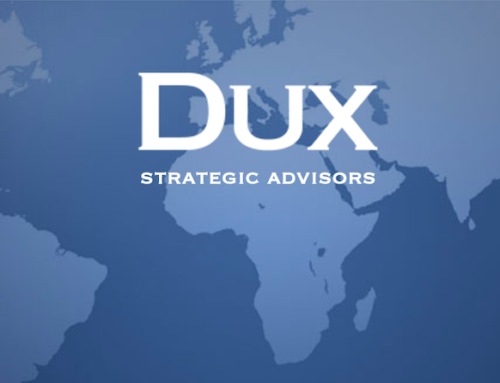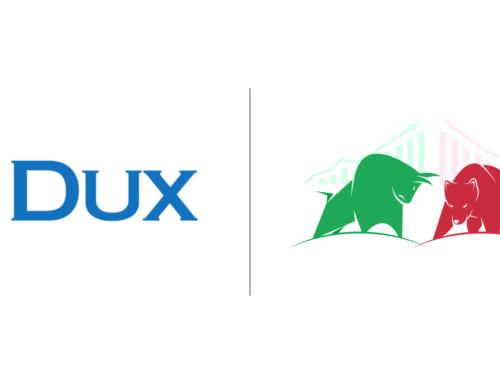30 March 2020
The novel coronavirus outbreak is a grey swan event that will recalibrate the global paradigm. The prospect of going through the next year or more until a vaccine could be disseminated to the public is precarious as the US and other societies are facing the types of zero sum choices not seen in generations. Traditional stimulus and quantitative easing measures are important, but a more comprehensive strategy must be deployed to counter this event.
Broad detection and testing –
We have no idea how many people are actually sick in the US. This is concerning as the US recently became the leading country in the world in detected novel coronavirus cases – yet we still have a long way to go before satisfactory per capita testing saturation is achieved.
A first priority must be establishing broad detection and testing in the US. Until then, authorities should curtail all non-essential activity both to slow the spread and to also allow a combined effort amongst commercial industry, state and local governments, the US military, and federal agencies to prepare for a COVID-19 shock to our healthcare system.
Under the powers of the Stafford Act, the President can and should activate elements of the military to support the restrained and delicate use of federal power his administration has demonstrated so far. We should maximally leverage the US military to meet the goal of establishing broad testing in the US.
Harden critical supply chains –
Essential goods and services must be provided in a stable and reliable manner.
Food is an utterly essential services and as we’ve seen from our supermarket superheroes to our local food businesses – the American people are willing and able to step up to work together.
We must provide health screening, cleaning supplies and paid sick leave to all of those working in essential goods retail and supply chain functions. Short of a miracle, we should expect that these workforces will inevitably be compromised by the virus – but the clear solution is to pay the sick to self-isolate as additional workers are hired.
We cannot put the people we are counting on in a position of having to choose between financial stability and playing it safe with self-isolation. Sick workers in these categories should maintain the tenure they had to keep their job before going out sick if they should need to, however, since these great companies and small businesses will be among the few hiring right now, proper management of these sectors is critical and would produce a much-needed market force to offset unemployment trends lasting well into the post COVID-19 era.
Rent, interest, and similar financial mechanisms would be forgiven (covered by the federal government) and this in combination with payments to those making less than a certain level of income (as with the recent stimulus bill) are appropriate measures that must be proactively established now.
Providing basic financial security to take self-isolation measures if necessary is immediately imperative within these critical supply chains. Most of the front-line employees in these sectors do not enjoy the security of paid sick leave or assurances that they would not lose their jobs altogether if they had to miss 14-days of work.
Embrace labor market rotations –
Americans accept the need to adjust workers from certain types of employment to others and embrace this as a long-lasting opportunity to establish greater efficiency and net value creation in the economy. One good thing that could emerge from this crisis is a reallocation of persons and long-term perspectives within the US labor markets.
At great expense to taxpayers and the middle class – and at extreme expense should debt forgiveness politics prevail – skilled labor and trade professions were marginalized in the US over recent decade. This unfair and negative social trend caused economic inefficiencies that manifested in falsely inflated demand for college education and a simultaneous lack of supply within certain sectors of the US labor market. Instead of pursuing great jobs that can pay six figures with several years of honest work and a desire to build a career, many Americans instead took on significant debt to achieve a lesser earning trajectory that also started later in life due to the time spent in the education system.
We should embrace a necessary rotation from certain sectors to others. Consumer behaviors, demands, and preferences will forever change after this crisis. The demand for home delivery of groceries, for example, should continue after and amidst the recovery as life returns to normal.
Persons affected by joblessness thus far in the crisis should enthusiastically rotate into available job opportunities as many will lead to further career opportunities as the US economy takes on new characteristics post-outbreak.
Mitigate and manage economic activity –
Shelter in place style states of emergency must persist for the next month (or more) broadly across the nation. Enforced travel restrictions and other means of effectively quarantining hot zones are necessary and correct.
In order to best mitigate the necessary impact on the economy, state and local government should use the definition of essential (and then later additional “allowed”) activities to throttle economic activity. This must be done through an epidemiological merit-based framework, meaning the criteria should be what businesses create the most relative economic and societal value versus the increased viral activity that their operation is expected to cause.
Pursue the easy way out –
The military, government agencies, and our commercial enterprises must judiciously and exhaustively seek to validate any immediately viable medical interventions. Most are aware of the 12-month or greater timeline required before a vaccine could be viable for the general public. Applications of existing medicines are a great hope and clearly a current priority for the administration.
Maintain law and order –
This is a powerful reminder to us all about the social contract and that contract must guide our response to this crisis. Under the Stafford Act and in accordance with the national emergency mission set of the military, NORAD should deploy designated active duty units into medical operations as well as security operations in support of state and local law enforcement.
Let’s not wait until after riots or looting to deploy our great military – let’s stop lawlessness before it ever starts. Since the legal and thoughtful application of our military during this crisis is a must, let us also avoid the reactionary deployment escalation that has consistently knee-capped our most challenged military campaigns from the start.
Send all the troops the mission will require right from the start; drive the situation – don’t let the situation drive us. As a former US Army airborne infantry Captain, I would rather see a light infantry battalion here in my local region than any continued or further civil disorder during the remainder of this crisis.
The significant economic and psychological sacrifices the good hearted majority of Americans are making right now cannot be sabotaged by the selfish, idiotic, and criminal.
America has become way too soft on crime over recent decades, with the felony recidivism rates as high as 85% in the US – we have devolved into a system that puts criminals that will not stop committing felonies back into society to almost inevitably victimize more innocent honest people.
We should take this as an opportunity to give the decent majority in this country a long overdue holiday from the criminals and deviants that steal so much from the social well-being. We must do this to save lives and maximize the value of the economic sacrifice so many are making right now.
Disclosure: This is an opinion article not intended as investment advice – any opinions expressed are as of the date of publication.




